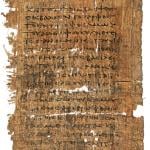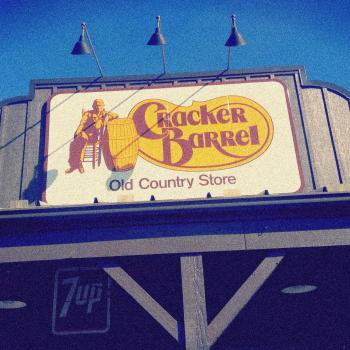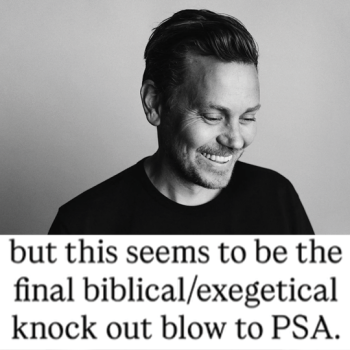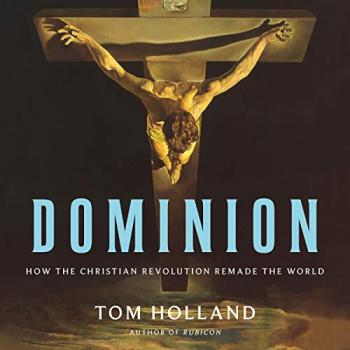James Dobson’s death last week marked the end of a particular era in conservative evangelical politics. It was certainly not the end of the Christian Right, but it was the conclusion of a particular phase of it, because it was the death of the last evangelical leader who was a direct orchestrator of the Sunbelt-centered marriage of Reagan Republicanism and the culture wars that occurred in the late 1970s.

For those who want to know more about Dobson’s career, I would recommend Hilde Lovdal Stephens’s Family Matters (University of Alabama Press, 2019), which is the best scholarly study of Dobson and his Focus on the Family radio program. It’s a balanced treatment that I think is well worth reading. I cover Dobson’s partisan politics in God’s Own Party, but Stephens’s study offers a lot more detail about Dobson’s book and radio program.
Perhaps in the early years of Dobson’s career as an evangelical psychologist and purveyor of childrearing and relationship advice, it was difficult to imagine that he would become a leading practitioner of Christian Right politics. But Dobson’s concerns about cultural decline and a liberal assault on the family guided his entire career, as one might have expected for someone whose life experiences were so closely parallel to those of other evangelical leaders who helped launch the Christian Right. He was a product of the same political trends and Sunbelt-centered cultural forces that shaped the lives of people like Jerry Falwell Sr. and Tim LaHaye.
But those forces were somewhat different than the forces that created the MAGA movement. Dobson was part of a different generation than contemporary evangelical Republicans. To understand Dobson’s career, we need to understand his larger generational context, which is what I wrote about on my Substack last Friday. Here’s what I said:
“James Dobson was the last surviving member of the generation of conservative evangelical leaders who founded the Christian Right. His death marks the end of a particular phase of that movement – but not in quite the way that perhaps some of his critics expected just a few years ago.
“The Christian Right of the late 1970s was the creation of people who were born in the late 1920s and 1930s. When I was writing God’s Own Party fifteen or more years ago, I was struck with how many of the prominent founding members of the New Christian Right were born at almost the same time. Jerry Falwell Sr. was born in 1933. Pat Robertson was born in 1930. Tim LaHaye was slightly older, but not by much; he was born in 1926. Even some of the lesser known figures who helped launch the Moral Majority were part of what is often called the “Silent Generation” – that is, the generation of people who were too young to serve in World War II but old enough to remember both the war and the Great Depression. Robert Billings was born in 1926. Charles Stanley was born in 1932.
“Dobson, who was born in 1936, was one of the younger (and longest-surviving members) of that generation, and his life experiences closely paralleled those of other members of that generation. Like most members of the Silent Generation who were born during the Great Depression, he experienced his fair share of childhood poverty. His father, who never went to college, was an itinerant minister in the Church of the Nazarene, a small Holiness denomination that at the time was filled with people who were struggling to get by. Like Falwell, he grew up on the edges of the small-town South. Born in Louisiana, he spent most of his childhood in Bethany, Oklahoma, before graduating from high school in San Benito, Texas.
“But then, like other members of his generation, he experienced the new opportunities of the Sunbelt that his parents’ generation could only dream of. Not only did he go to college (Point Loma Nazarene University) and marry a classmate, but he then went on to get a master’s degree, followed by a Ph.D. from the University of Southern California. He became a child psychologist and faculty member at a medical college in the Los Angeles area, and then started a family in the late 1960s, at just the moment that California campuses were being torn apart by a culture war over Vietnam and a new rights consciousness.
“Like other members of his generation, Dobson had come of political age in the 1950s, when civil religion was strong and when “In God We Trust” became the nation’s motto. But by the late 1960s, fewer people were attending church than had done so during the Eisenhower era, and American religion was fragmenting. A sexual revolution was creating a sea change in Americans’ views of premarital sex and, later, other forms of sex outside of heterosexual marriage. In 1964, most college students believed that premarital sex was wrong, according to surveys taken at the time. By 1968, the percentage of college students who still believed that was rapidly falling, and by 1975, it had become a small minority.
“Like other founders of the New Christian Right, Dobson believed that there was a connection between the loss of civil religious values and the decline in sexual ethics. As he began raising his children, he was alarmed by a culture that he perceived was increasingly hostile toward conservative Christian values.
“Perhaps if he had been ten or twenty years older, he wouldn’t have had young children in his family to worry about, and therefore wouldn’t have been quite as motivated to launch a culture-war movement to fight back against the hostile forces in society that he thought were threatening his family’s moral values. Perhaps if he had been ten or twenty years younger, he wouldn’t have been quite as alarmed by the nation’s sharp turn away from the values of the Eisenhower era, and he wouldn’t have felt quite so antipathetic to the counterculture. But he was part of a Silent Generation that was caught in the middle of this cultural maelstrom, and like other cultural conservatives of his generation, he was alarmed enough by the cultural changes to want to launch a movement to save his children and reclaim the culture for conservative Christian values.
“At first, he was more hesitant than Falwell or LaHaye to become overtly political. Instead, he fought the culture war by writing books – and then launching a radio program – to decry permissive parenting and encourage families to embrace conservative Christian values. But eventually, he decided that the cultural assault on the family meant taking the partisan plunge and directly opposing progressive politicians who supported abortion rights and gay rights.
“Members of Dobson’s generation of Sunbelt evangelicals linked their campaign for “family values” to the economic values of the Sunbelt and to the hawkish civil religion of the 1950s. They supported the Cold War, and applauded Reagan when he revived a hawkish policy against the Soviet Union. They supported the free market. And they believed in the possibility of upward economic mobility if the country remained true to its founding (conservative) values – because their own generation had personally experienced an unprecedented degree of upward mobility. And yet they were alarmed at the thought that culturally liberal trends threatened the values that they believed had supported the good life they had enjoyed in the 1950s. The sexual revolution and the loss of American religious values would destroy the nation, they believed.
“Because this political outlook was so closely connected to the particular generation of Sunbelt evangelicals who, like Dobson, had come of age during the Eisenhower era and had reacted against the cultural changes of the late 1960s and 1970s, it was hard to imagine that it could continue after that generation passed from the scene. Indeed, in 2007-2008, many pundits were predicting the imminent demise of the Christian Right. Evangelicalism itself would not vanish, nor would all of the Christian Right’s political causes. But a new generation of evangelicals who couldn’t remember Eisenhower and who had no experience of a country before Roe v. Wade would probably be more pluralistic and less interested in the particular culture wars that had energized Dobson and Falwell, even if they remained pro-life and generally conservative.
“But to the surprise of many, what faded among conservative evangelicals was not the vehemence of the culture war rhetoric, but rather the faith in America’s mission abroad and the sense of upward mobility that had pervaded the Christian Right of the 1980s. As the geographic locus of conservative evangelical politics shifted away from the southern California suburbs where Dobson had launched his career and back toward the rural South where Dobson’s parents had lived, conservative evangelicalism lost its Sunbelt flavor but not its anger or its discomfort with pluralism.
“Some might view Dobson’s culture wars as a harbinger of the MAGA movement. But Dobson, in fact, was slow to embrace Trump; he opposed him during the 2016 presidential primaries. Like other members of the Silent Generation of conservative evangelicals, Dobson believed in certain values that were difficult to reconcile with Trump’s persona. And though he eventually became a Trump supporter, he did so primarily because he saw Trump as the only way to get a conservative Supreme Court, not because he was initially longing for Trump to be president.
“But even if Dobson was not part of the earliest wave of MAGA Republicans, he did abandon most of the Sunbelt-flavored hopeful optimism that had characterized his early work. As he aged, he became increasingly angry with cultural liberalism and increasingly apocalyptic in his predictions of what would happen if pro-choice progressives controlled the federal government. At one point, some observers thought that that anger would not appeal to younger evangelicals. But maybe it did, even when it was stripped of its original generational context.
“I would like to imagine that Dobson’s lasting legacy will be his books of family relational advice that he published in the 1970s, during his Sunbelt-shaped stage of largely nonpartisan cultural conservatism. But I’m not sure if that will be the case. Perhaps what people will remember most will be his shrill political warnings, which became increasingly dire as he perceived that he was losing the battle for America’s culture.
“I think that Dobson imagined at the outset of his campaign that he could turn the country’s culture around. But as he perceived the battle lines shifting in the wrong direction – that is, as he saw a campaign against gay rights moving to a fight against same-sex marriage, and then to a fight against transgender identity, with culture-war defeats for conservative Christians marking every major movement of the goal post – he became increasingly upset, and his anger pushed him into political alliances that perhaps he would never have considered in the 1970s or 1980s. His career didn’t end in the way that he might have dreamed of it ending when he launched his Focus on the Family ministry in the 1970s.
“Dobson’s career thus spanned both the early hope of the Christian Right and its pessimistic conclusion – or, at least, the conclusion of one phase of it. With Dobson’s death, the phase that was shaped by the Cold War and the postwar Sunbelt has now ended. What remains, though, is the continued culture war – and that shows no signs of abating, even with the fight being waged by a new generation.”












